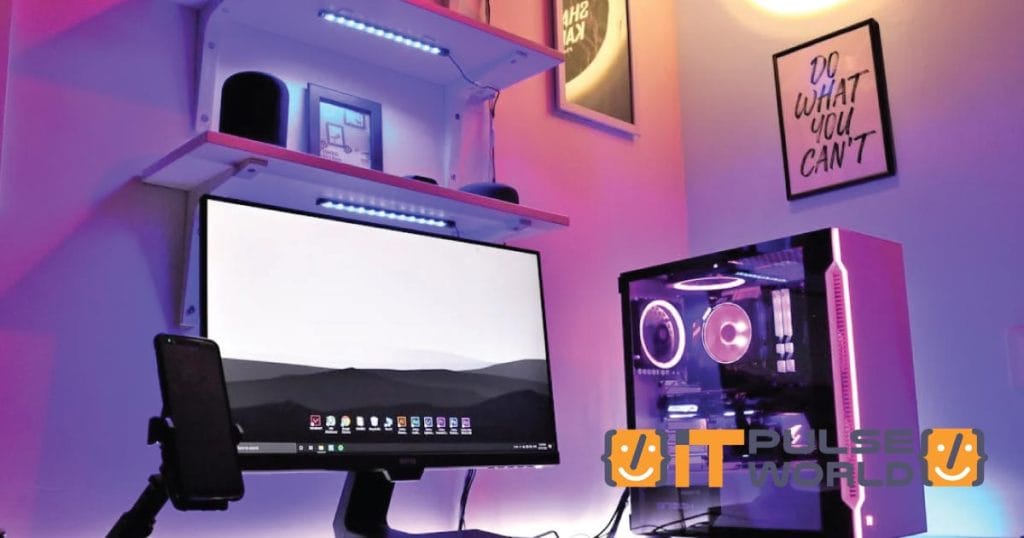The 7 factors to consider before buying a Gaming PC
LATEST POSTS

Choosing a gaming PC means carefully evaluating each component to ensure compatibility, performance, and longevity. Every decision counts, from the GPU and CPU to the power supply and case.
If you’re looking to upgrade your gaming experience with a gaming PC, whether by purchasing a pre-built one or building your rig, it’s crucial to prioritize performance over aesthetics.
These seven tips, from selecting a powerful GPU to ensuring your system stays cool under pressure, will help you choose the perfect PC for your needs.
7 Things to Consider When Buying a Gaming PC
1) Choose the proper GPU: The queen of performance
The graphics processing unit (GPU) is the most important component in any gaming PC. Currently, Nvidia GeForce RTX 40 Series graphics cards dominate the market thanks to technologies such as DLSS (Deep Learning Super Sampling) and ray tracing.
* High-end option: Nvidia RTX 4090, capable of running 4K games at over 120 fps.
* Budget option: Nvidia RTX 4060, ideal for 1080p and 1440p gaming without breaking the bank.
* VRAM: Go for a GPU with at least 12GB of GDDR6 memory to ensure compatibility with future, more resource-intensive games.
2) Don’t neglect the CPU: The heart of the system
While the GPU is paramount, the processor (CPU) plays an important role in avoiding performance bottlenecks in your games.
High-value processors:
* AMD Ryzen 5 7600X
* Intel Core i5-13400
Premium options:
* AMD Ryzen 7 9800X3D
* Intel Core Ultra Series 2
Tip: Check that the CPU socket is compatible with your motherboard (for example, Ryzen 7000 requires Zen 4 boards).
3) The motherboard: Beyond compatibility
The motherboard connects all of your PC’s components, and choosing the right one can determine your rig’s compatibility and functionality.
CPU Compatibility: Make sure the socket is suitable for your chosen processor.
Key Features:
* Sufficient RAM slots
* PCIe lanes for graphics cards
* NVMe slots for fast storage
* Variety of ports (USB-C, HDMI 2.1, etc.)
Recommendation: Gigabyte Z890 motherboards (from $289) are ideal for Intel Core Ultra processors.
4) Good ventilation is vital
Choosing the right case not only improves the aesthetics of your PC, but is also crucial for keeping your components cool.
Optimal airflow design:
* 3 front fans for air intake
* 2 top fans and one rear fan for expulsion
Recommended model: MSI MPG Gungnir 300R ($155), which combines style and functionality.
Tip: Make sure your motherboard and GPU fit the size of your chosen case.
5) Power Supply (PSU): Ensure the future of your PC
The power supply not only powers your system but also determines whether you can upgrade components in the future.
Power Recommendations:
650W for mid-range configurations
850W or more for systems with powerful GPUs like the RTX 4090
Noise: Prefer PSUs from well-known brands that run quietly to avoid disturbances.
6) RAM: Don’t exceed what is necessary
RAM is important, but you don’t need to go overboard to get good gaming performance.
Recommended quantity:
* 16GB of DDR5 RAM is enough for most modern games.
* 32GB is useful if you also do video editing or content creation.
Tip: Don’t invest in more memory than necessary, as the GPU and CPU have a much more significant impact on fps.
7) Ports: Optimize your Gaming Experience
While the number of ports does not affect gaming performance, it does affect the overall user experience.
Essential ports:
* USB-C and USB-A for connecting accessories
* HDMI 2.1 and DisplayPort for high-quality monitors
* Additional connections for peripherals such as headsets, controllers, or cameras for streaming.
Tip: Make sure your motherboard has enough ports and a variety of ports for your current and future needs.
By following these 7 tips, you’ll have a gaming PC that will provide you with hours of fun and outstanding performance for years to come. Are you ready to take your gaming experience to the next level?




